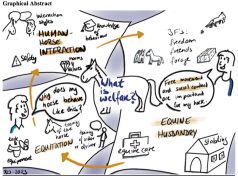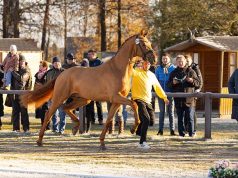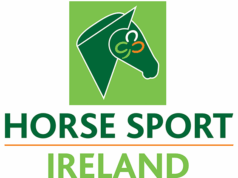By Dr. Eva-Maria Broomer
Two-thousand and nineteen is a significant year for the World Breeding Federation who celebrates 25 years of bringing together studbooks and breeders from all over the world to promote international collaboration, mutual respect and understanding, and of forging stronger links between breeding and the sport.
Where better to mark this special occasion than in the beautiful town of Saumur, France, home to the famous Cadre Noir who treated us to a beautifully choreographed evening of exquisite music and classical horsemanship, followed by a visit to Lion d’Angers which saw the FEI-WBFSH World Championships for Young Eventing Horses.
This year’s General Assembly, co-hosted by the Selle Francais and the Association Nationale Anglo Arabe with the support of the IFCE, thus very much reminded us of the roots and traditions of our sport, and the love of horses that unites us all, as well as of the continued need to reach out and embrace the international nature of equestrian breeding for the modern age. Nothing could have illustrated this more compellingly than our outstanding new eventing champions: The six-year-old ZVCH mare Cooley Lancer, bred by the Swiss breeder Eliano Meroni, by the DSP registered stallion Coeur de Nobless M, owned by the Irish Stud Cooley Farm, and presented under the British rider Piggy French. And the seven-year-old KWPN gelding Happy Boy (Indoctro x Odermuser) bred by A Rijpma and under the saddle of the New Zealand rider Tim Price.
Attendees of the WBFSH General Assembly and accompanying programme have long learned to appreciate its unique blend of social entertainment and networking opportunities with serious discussions, workshops, and presentations to highlight the most recent developments in our industry.
WHIRDEC and IBVs
The following day’s programme commenced with the annual WHIRDEC meeting, which saw attendance from studbook and other industry representatives alike. Over the years, WHIRDEC has offered a highly important forum for the discussion and clarification of legislation relating to the registration and identification of equines, and has thus become invaluable as a mechanism for sharing information and as a place where studbooks can consolidate their views and raise questions to be put to the relevant legislative authorities. This year’s discussion centered on the latest EU legislation accompanying the Animal Health Law and its potential impact on the way in which studbooks conduct their registration activities. We also agreed to the need to share identification data and information across studbooks and countries and explored potential technical solutions...To read the complete article you need to be a subscriberCLICK HERE TO SUBSCRIBE TO BREEDING NEWS
SUBSCRIBERS CAN READ THE COMPLETE ARTICLE BY LOGGING IN AND RETURNING TO THIS PAGE



